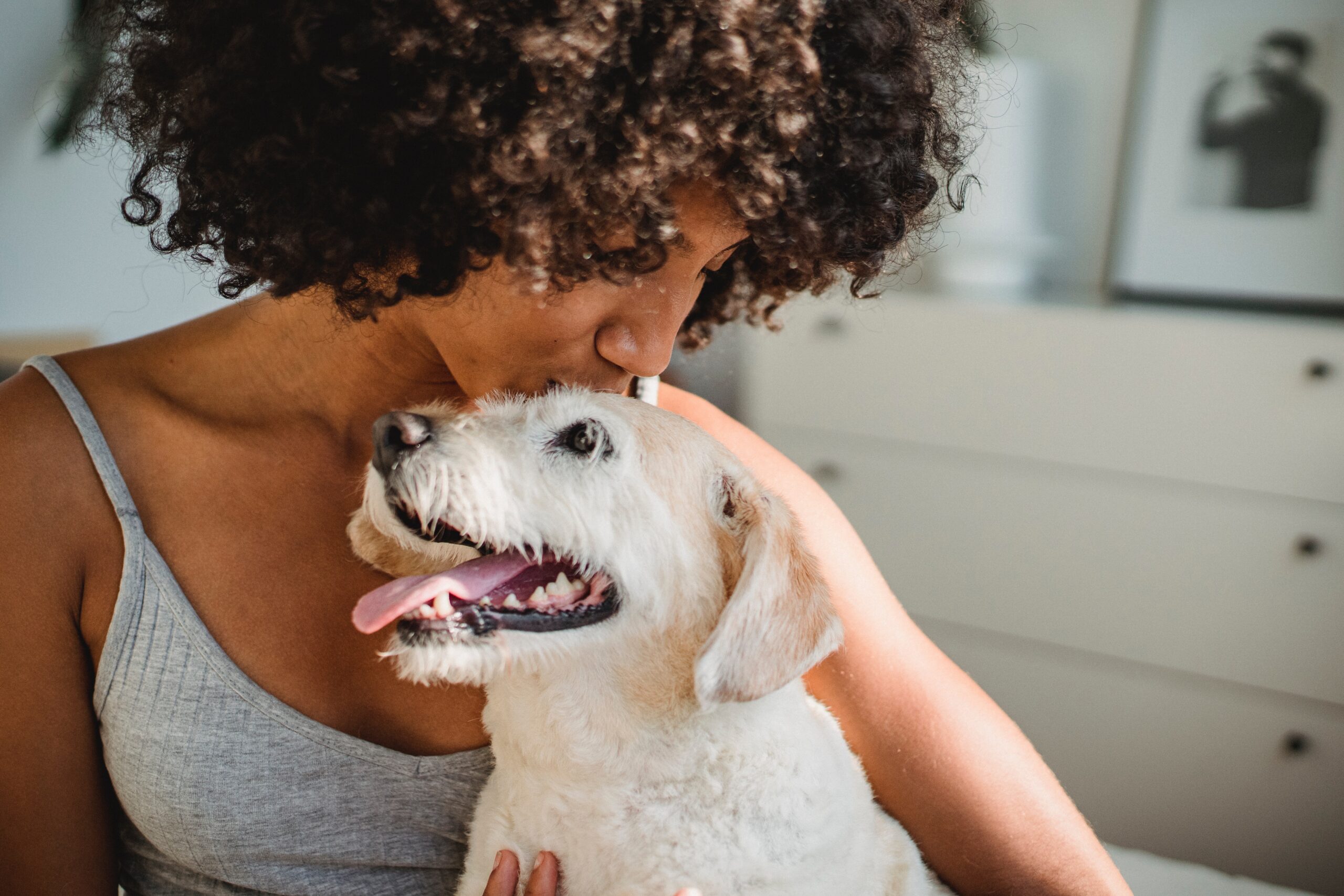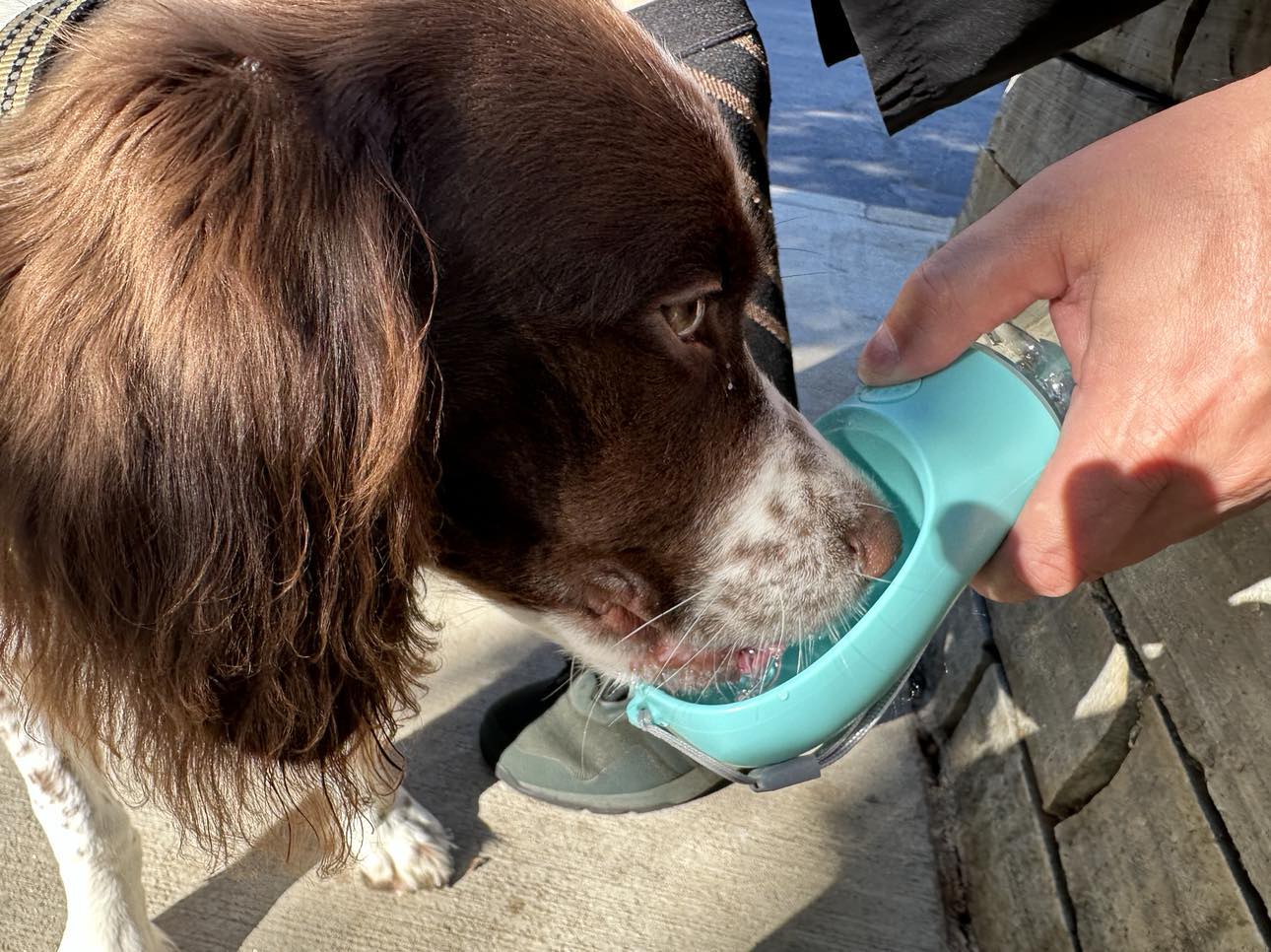Emotional support dogs play a vital role in providing comfort, companionship, and emotional stability to individuals struggling with mental health challenges. These dogs are not classified as service animals but are specifically chosen to offer therapeutic support to their owners. The bond between an emotional support dog and their owner can have a profound positive impact on mental well-being, promoting a sense of calmness, reducing stress, and alleviating symptoms of anxiety and depression.
The presence of an emotional support dog can help individuals feel less isolated and lonely, providing a constant source of unconditional love and support. These loyal companions can serve as a source of distraction from negative thoughts and encourage a more active and fulfilling lifestyle.
Advantages of Small Dog Breeds as Emotional Support Animals
While emotional support can be provided by dogs of all sizes, small dog breeds have unique advantages that make them especially well-suited for the role. Their compact size allows them to fit comfortably in various living situations, including apartments and small homes, making them accessible to a broader range of individuals. The ease of traveling with a small emotional support dog also ensures that their comforting presence can be with their owners in various settings, offering emotional support wherever they go.
Additionally, small dog breeds often have gentle and affectionate temperaments, naturally drawn to forming strong bonds with their owners. Their loving and attentive nature enables them to be highly perceptive of their owners’ emotional needs, providing immediate comfort and support during times of distress.
In this article, we will explore the best small dog breeds that excel in offering emotional support, highlighting their unique qualities and how they contribute to enhancing mental well-being. From their calming presence to their unwavering loyalty, these furry companions have proven to be powerful allies in the journey toward improved mental health and overall well-being.
Characteristics of Small Dog Breeds for Emotional Support
Small dog breeds possess a unique set of characteristics that make them particularly well-suited for offering emotional support to their owners. These traits contribute to creating a strong and meaningful bond between the dog and their human companion, providing a sense of security and comfort.
- Gentle and Affectionate Nature: Small dog breeds are known for their gentle and loving disposition. Their warm and affectionate nature creates a nurturing environment for emotional support, as they readily offer comfort and solace during times of distress. The unconditional love and tenderness they demonstrate help individuals feel valued and cared for, promoting emotional well-being.
- Loyal and Devoted Companionship: Small emotional support dogs are incredibly loyal to their owners. They form strong attachments and are devoted to providing constant support and companionship. This loyalty fosters a sense of trust and dependability, assuring their owners that they are never alone in facing life’s challenges.
- Adaptability to Various Living Situations: Small dog breeds are highly adaptable and can thrive in various living environments. Whether living in a bustling city apartment or a suburban home, these dogs easily adjust to their surroundings. Their ability to adapt ensures that they remain reliable sources of emotional support in any situation, bringing comfort to their owners wherever they may be.
Overall, these endearing characteristics of small dog breeds make them ideal emotional support animals. Their innate ability to provide affection, loyalty, and adaptability fosters a strong emotional connection with their owners, supporting them through challenging times and enhancing their overall mental well-being. In the following sections, we will explore specific small dog breeds renowned for their exceptional emotional support capabilities and delve deeper into their individual qualities that make them valuable companions for emotional support.
Top Small Dog Breeds for Emotional Support
Cavalier King Charles Spaniel
- Gentle and Affectionate Demeanor: Cavalier King Charles Spaniels are renowned for their gentle and loving nature. They excel at offering comfort and emotional support, making them ideal companions for those in need of emotional assistance. Their soft and tender disposition provides a calming presence, soothing anxiety and stress.
- Natural Intuition for Emotional Support: This breed has a remarkable ability to sense their owner’s emotions and respond accordingly. They are attuned to their human’s needs and are quick to offer affectionate gestures and comforting cuddles, providing a sense of reassurance during difficult times.
Miniature Schnauzer
- Loyal and Devoted Companionship: Miniature Schnauzers are incredibly loyal and devoted to their owners. Their unwavering dedication fosters a strong emotional bond, assuring individuals of unwavering support and companionship.
- Intelligence and Ease of Training: These intelligent dogs are quick learners, making them easy to train for emotional support tasks. Their willingness to please their owners and their eagerness to learn new commands further solidify the emotional connection between them and their human companion.
French Bulldog
- Playful and Humorous Nature: French Bulldogs have a playful and comedic side, which brings joy and laughter to their owners’ lives. Their entertaining antics serve as a delightful distraction, easing tension and brightening moods.
- Low Exercise Requirements, Suitable for Various Living Situations: French Bulldogs have relatively low exercise needs, making them well-suited for individuals with varying lifestyles. Their adaptability allows them to offer emotional support in apartments or homes with limited outdoor space.
Pomeranian
- Energetic and Enthusiastic Companionship: Pomeranians are energetic and enthusiastic companions, readily engaging in playful activities with their owners. Their boundless energy injects vitality into their human companion’s life, combating feelings of lethargy and promoting an active lifestyle.
- Small Size, Making Them Great for Apartment Living: The Pomeranian’s small size allows them to comfortably reside in apartments or smaller living spaces, ensuring they can always be by their owner’s side.
Shih Tzu
- Calm and Cuddly Temperament: Shih Tzus are known for their calm and affectionate demeanor. Their preference for cuddling and physical closeness provides a source of comfort, easing anxiety and promoting relaxation.
- Ability to Form Strong Bonds with Their Owners: Shih Tzus are highly affectionate and form strong bonds with their owners. Their emotional connection allows them to sense their human’s emotional state, providing support and empathy.
Yorkshire Terrier
- Affectionate and Protective Nature: Yorkshire Terriers are affectionate and protective of their owners. Their nurturing instincts make them reliable emotional support animals, offering comfort and protection during challenging times.
- Compact Size and Portable, Perfect for Emotional Support On-The-Go: The Yorkshire Terrier’s small size allows them to accompany their owners wherever they go, ensuring a constant source of emotional support, even when traveling.
Havanese
- Friendly and Social with Both Humans and Other Animals: Havanese dogs have a friendly and outgoing nature, making them approachable and comforting companions for individuals seeking emotional support.
- Happy Disposition, Always Ready to Provide Comfort and Companionship: Havanese dogs have a cheerful and joyful demeanor, brightening their owners’ moods and creating a positive atmosphere.
Chihuahua
- Loyal and Attentive to Their Owners’ Emotions: Chihuahuas are deeply loyal to their owners and are highly attuned to their emotions. Their unwavering attentiveness allows them to respond to their human’s emotional needs intuitively.
- Small Size, Suitable for Those with Limited Living Space: Chihuahuas’ compact size makes them well-suited for individuals living in apartments or smaller homes, offering emotional support in any living situation.
Boston Terrier
- Gentle and Affectionate with a Lively Personality: Boston Terriers have a sweet and affectionate nature, combined with a lively and playful personality. Their vivacity brings a sense of joy and vitality to their owners’ lives.
- Good at Sensing and Responding to Emotional Cues: Boston Terriers possess a keen sense of awareness, allowing them to detect emotional cues and respond with appropriate comfort and affection.
Maltese
- Sweet and Gentle Temperament: Maltese dogs have a sweet and gentle disposition, making them loving and tender emotional support companions.
- Hypoallergenic Coat, Making Them Ideal for Allergy-Sensitive Individuals: The Maltese’s hypoallergenic coat reduces the risk of triggering allergies, allowing them to provide emotional support to individuals with sensitivity to pet dander.
Bonding and Connecting with Small Emotional Support Dogs
Building a strong bond with your small emotional support dog is essential for establishing a meaningful and effective emotional support relationship. The depth of this connection directly influences the dog’s ability to provide comfort and support during challenging times. Here are some key aspects to consider for fostering a strong bond with your furry companion:
- Spend Quality Time Together: Allocate dedicated time each day to bond with your small emotional support dog. Engage in activities that promote interaction and closeness, such as cuddling, gentle petting, and talking to them in a soothing tone. These moments of connection reinforce the emotional bond between you and your furry friend.
- Be Attentive to Their Needs: Pay close attention to your small dog’s body language, behavior, and vocalizations. Understanding their cues allows you to respond appropriately to their emotional needs and creates a sense of trust between you and your dog.
- Practice Patience and Understanding: Building a strong bond may take time, especially if you and your dog are still getting to know each other. Be patient and avoid rushing the process. Approach interactions with kindness and understanding, respecting your dog’s individual personality and boundaries.
Activities to Strengthen the Emotional Connection, Such as Daily Walks and Interactive Play
- Daily Walks: Regular walks provide an excellent opportunity for you and your small emotional support dog to explore the world together. This shared experience fosters companionship and helps them feel safe and secure with you as their trusted companion.
- Interactive Play: Engaging in interactive play sessions with your small dog not only strengthens the bond but also promotes physical and mental stimulation. Playing games like fetch, tug-of-war, or puzzle toys encourages them to interact with you, deepening the emotional connection.
- Training and Positive Reinforcement: Incorporate positive reinforcement training into your daily routine. This method of training not only helps in teaching new commands but also reinforces your dog’s confidence in you as a reliable and supportive leader.
- Relaxation Time: Set aside quiet and calming moments to relax together. Gently stroking or massaging your small dog can be soothing for both of you, enhancing the emotional connection and providing comfort.
- Joint Activities: Involve your small emotional support dog in activities you enjoy. Whether it’s reading a book, watching TV, or spending time in the garden, having them by your side creates a sense of companionship and emotional support.
By engaging in these bonding activities, you establish a strong emotional connection with your small dog, creating a foundation for effective emotional support. Remember that each dog is unique, and the strength of the bond grows over time through consistent positive interactions and nurturing care. In the next sections, we will explore training techniques and socialization tips to further enhance the emotional support bond between you and your small canine companion.
Training and Socialization Tips for Small Emotional Support Dogs
Proper training and socialization are vital for small emotional support dogs to fulfill their roles effectively and provide the best emotional support possible. Training not only helps them learn essential commands but also strengthens the bond between you and your furry companion. Socialization, on the other hand, ensures that your small dog is comfortable and confident in various environments and around different people and animals. Here are some reasons why training and socialization are crucial:
- Building Trust: Training and socialization activities build trust between you and your small emotional support dog. As they learn to respond to your commands and experience positive interactions with others, their confidence in you as a supportive and reliable leader grows.
- Safety: Training ensures that your small dog understands boundaries and behaves appropriately in various situations. This not only keeps them safe but also promotes a sense of security for you as their owner.
- Reducing Anxiety: Properly trained and socialized small emotional support dogs are less likely to feel anxious or stressed in unfamiliar situations. The exposure to new experiences during socialization helps them adapt and feel at ease in different settings.
Tips for Obedience Training and Managing Anxiety in Small Emotional Support Dogs
Obedience Training
- Start Early: Begin training your small emotional support dog as soon as you bring them home. Early training sets the foundation for their behavior and establishes you as the pack leader.
- Use Positive Reinforcement: Reward-based training with treats, praise, and affection reinforces positive behavior and encourages your dog to repeat desired actions.
- Keep Training Sessions Short and Fun: Small dogs have shorter attention spans, so keep training sessions brief and enjoyable. This keeps them engaged and prevents boredom or frustration.
- Consistency is Key: Be consistent with your commands and expectations. Use the same cues for specific behaviors, and ensure everyone in the household follows the same training guidelines.
Managing Anxiety
- Gradual Exposure: Introduce your small dog to new environments and experiences slowly. Gradual exposure to new situations helps them acclimate and feel more at ease.
- Stay Calm: Your emotional state can influence your dog’s anxiety levels. Remain calm and composed during stressful situations to reassure your small emotional support dog that everything is okay.
- Provide a Safe Space: Designate a quiet and comfortable area in your home where your dog can retreat if they feel overwhelmed or anxious. This safe space can be their go-to spot when they need some downtime.
- Seek Professional Help if Needed: If your small emotional support dog shows signs of significant anxiety or behavioral challenges, consider consulting a professional dog trainer or behaviorist for personalized guidance.
By investing time and effort in training and socialization, you can help your small emotional support dog become a confident, well-mannered, and emotionally supportive companion. These skills not only enhance their ability to provide emotional support but also contribute to their overall well-being and happiness. In the next section, we will explore the importance of providing a nurturing and supportive environment for your small emotional support dog, ensuring they thrive as your dedicated emotional support companion.
Legal Considerations and Regulations for Emotional Support Dogs
The Difference Between Emotional Support Dogs and Service Dogs
It is essential to understand the distinction between emotional support dogs and service dogs, as they serve different roles and are subject to varying legal protections:
- Emotional Support Dogs: Emotional support dogs are companions that provide comfort, affection, and emotional support to individuals experiencing mental health conditions. They do not receive specialized training to perform specific tasks or skills. Instead, their mere presence and emotional connection contribute to their owner’s well-being. Emotional support dogs do not have public access rights and are not permitted in non-pet-friendly places, such as restaurants or shops.
- Service Dogs: Service dogs undergo extensive training to perform specific tasks or services that assist individuals with physical disabilities, sensory impairments, or other medical conditions. These tasks are directly related to the individual’s disability and are trained to mitigate the person’s limitations. Service dogs are granted public access rights under the Americans with Disabilities Act (ADA), allowing them to accompany their owners to public places, including restaurants, stores, and transportation.
Clarifying the Legal Rights and Responsibilities of Emotional Support Dog Owners
- Housing Rights: Under the Fair Housing Act (FHA), individuals with emotional support dogs have specific rights in housing situations. Landlords and housing providers are required to make reasonable accommodations for individuals with disabilities, including emotional support animals. This means that even in properties with no-pet policies, emotional support dogs may be allowed as a reasonable accommodation for those in need.
- Air Travel: The Air Carrier Access Act (ACAA) permits emotional support dogs to fly with their owners in the cabin of an aircraft without paying additional pet fees. However, airlines may require documentation from a qualified mental health professional stating the individual’s need for an emotional support animal.
- Public Spaces: Unlike service dogs, emotional support dogs do not have public access rights. They are not allowed in places where pets are typically prohibited, such as restaurants, stores, and public transportation. Emotional support dog owners should respect these limitations and be aware of the specific places where their dog is welcome.
- Responsible Ownership: Emotional support dog owners have a responsibility to ensure their dogs are well-behaved, non-disruptive, and do not pose a threat to others. Proper training, socialization, and maintaining good behavior in public places are essential for responsible ownership of emotional support dogs.
- Documentation: While emotional support dogs do not require specialized training, some housing providers and airlines may request documentation from a qualified mental health professional to verify the individual’s need for an emotional support animal. It is essential to have the necessary documentation readily available when required.
As an emotional support dog owner, being knowledgeable about the legal rights and responsibilities can ensure a positive and respectful experience when living with or traveling with your beloved companion. Understanding these regulations helps protect the rights of individuals who rely on emotional support dogs for their mental well-being while respecting the rights of businesses and the general public. In the final section, we will summarize the key points discussed and reiterate the value of emotional support dogs in providing comfort, companionship, and improved mental health to those in need.
Caring for Small Emotional Support Dogs
Specific Needs of Small Dog Breeds, Including Grooming, Exercise, and Nutrition
Caring for small emotional support dogs involves understanding and meeting their specific needs, which can differ from larger breeds. Small dog breeds have unique characteristics that require attention and care to ensure their well-being and happiness. Here are some essential aspects to consider when caring for small emotional support dogs:
- Grooming: Small dog breeds often have different coat types, such as long, short, or curly fur. Regular grooming is essential to keep their coats clean, free of tangles, and to minimize shedding. Grooming routines may vary based on the type of coat, so it’s essential to research the specific grooming requirements of your dog’s breed.
- Exercise: Although small dogs may not need as much exercise as larger breeds, regular physical activity is still vital to keep them mentally and physically stimulated. Daily walks, play sessions, and interactive games help maintain their overall health and prevent behavioral issues caused by boredom.
- Nutrition: Providing a balanced and nutritious diet is crucial for the well-being of small emotional support dogs. Consult with your veterinarian to determine the appropriate type and amount of food based on your dog’s age, size, and activity level. Avoid overfeeding, as small dogs are prone to obesity, which can lead to various health problems.
- Dental Care: Small dog breeds are often more susceptible to dental issues, such as tartar buildup and gum disease. Regular teeth brushing and dental treats can help maintain their oral health and prevent dental problems.
- Proper Rest: Small emotional support dogs need ample rest and sleep to recharge. Provide them with a comfortable, quiet, and designated sleeping area where they can relax and feel safe.
Importance of Regular Veterinary Check-ups and Health Care
Regular veterinary check-ups are essential for the well-being of small emotional support dogs. Routine visits to the veterinarian allow for early detection and prevention of health issues, ensuring that your furry companion remains healthy and happy. Here are the key reasons why regular veterinary care is essential:
- Health Monitoring: Regular check-ups enable the veterinarian to assess your small dog’s overall health and detect any potential health concerns. Early detection allows for timely intervention and treatment, increasing the likelihood of successful outcomes.
- Vaccinations and Preventive Care: Keeping your dog up-to-date on vaccinations and preventive treatments, such as flea and tick prevention, is vital for safeguarding their health and preventing contagious diseases.
- Dental Health: Regular dental check-ups and cleanings help maintain your small dog’s oral health, preventing dental issues that can lead to pain and discomfort.
- Nutritional Guidance: Your veterinarian can provide valuable advice on your small dog’s dietary needs, ensuring they receive the appropriate nutrients for their size, age, and health condition.
- Behavior and Training: Veterinarians can offer guidance on behavior and training issues, helping you address any challenges and maintain a harmonious relationship with your small emotional support dog.
By prioritizing grooming, exercise, nutrition, proper rest, and regular veterinary care, you can provide the best possible care for your small emotional support dog. A healthy and happy canine companion enhances their ability to provide emotional support and strengthens the bond between you and your furry friend. In the final section, we will summarize the key points discussed throughout the article and emphasize the profound impact of small emotional support dogs on mental well-being.
The Human-Animal Bond: How Small Dogs Provide Emotional Support
The human-animal bond is a subject of scientific interest, and research continues to shed light on the profound therapeutic effects of this unique relationship. Studies have shown that interactions with small emotional support dogs can have various positive effects on mental health, including:
- Stress Reduction: Interacting with small emotional support dogs can lower cortisol levels, the hormone associated with stress. Petting and cuddling with these furry companions promote feelings of relaxation and reduce anxiety.
- Increased Oxytocin Levels: Spending time with small dogs has been shown to release oxytocin, often referred to as the “love hormone.” This hormone is associated with bonding and feelings of affection, reinforcing the emotional connection between humans and their canine companions.
- Improved Mood: The presence of small emotional support dogs can enhance mood and reduce feelings of loneliness or sadness. Their playfulness and unconditional love can bring moments of joy and laughter to their owners’ lives.
- Social Interaction: Small dogs can act as social facilitators, encouraging individuals to engage in conversations and interactions with others. This social support can be particularly beneficial for those experiencing feelings of isolation.
- Sense of Purpose: Caring for a small emotional support dog provides a sense of purpose and responsibility, fostering a routine and structure that contributes to improved mental well-being.
- Distraction and Mindfulness: Small emotional support dogs can help divert attention from negative thoughts or intrusive emotions, promoting mindfulness and a focus on the present moment.
The science behind the human-animal bond confirms what many pet owners already know—that the presence of small emotional support dogs has a profound and positive impact on mental health. Their unconditional love, empathy, and ability to provide comfort create a unique therapeutic relationship that extends far beyond words.
Conclusion
In conclusion, small emotional support dogs play an integral role in providing comfort, companionship, and emotional support to individuals facing mental health challenges. Through their affectionate nature, loyalty, and intuitive understanding, these furry companions become trusted allies in the journey towards improved mental well-being. The deep bond shared between humans and their small emotional support dogs is a testament to the transformative power of the human-animal connection. As we continue to learn and appreciate the benefits of this bond, the significance of small emotional support dogs in enhancing mental health becomes ever more evident.
If you are seeking emotional support or know someone who could benefit from it, consider the profound impact a small dog can have on mental well-being. The human-animal bond shared with these furry friends is powerful, offering comfort, understanding, and a non-judgmental presence that can be genuinely transformative. Whether you are dealing with anxiety, depression, or any other mental health challenge, a small emotional support dog can be a source of comfort and support, helping you navigate life’s ups and downs with newfound strength.
As you embark on the journey of welcoming a small emotional support dog into your life, remember the significance of training, socialization, and responsible ownership. Taking care of your canine companion’s specific needs, including grooming, exercise, and nutrition, ensures they remain healthy and happy, ready to provide their unwavering emotional support.
Small emotional support dogs enrich our lives in ways beyond measure, leaving an indelible mark on our hearts and minds. Their unconditional love, loyalty, and ability to be attuned to our emotions make them not just pets but cherished emotional companions. Through the human-animal bond, we find solace, comfort, and hope—a reminder that in the presence of our small emotional support dogs, we are never alone.
Consider opening your heart and home to a small dog breed as an emotional support animal and experience the powerful influence they can have on your mental well-being. Their unwavering support and unconditional love are gifts that keep giving, fostering a stronger sense of connection and improving overall emotional health. With their comforting presence, small emotional support dogs become beacons of light, guiding us towards brighter days and a more fulfilled life.










